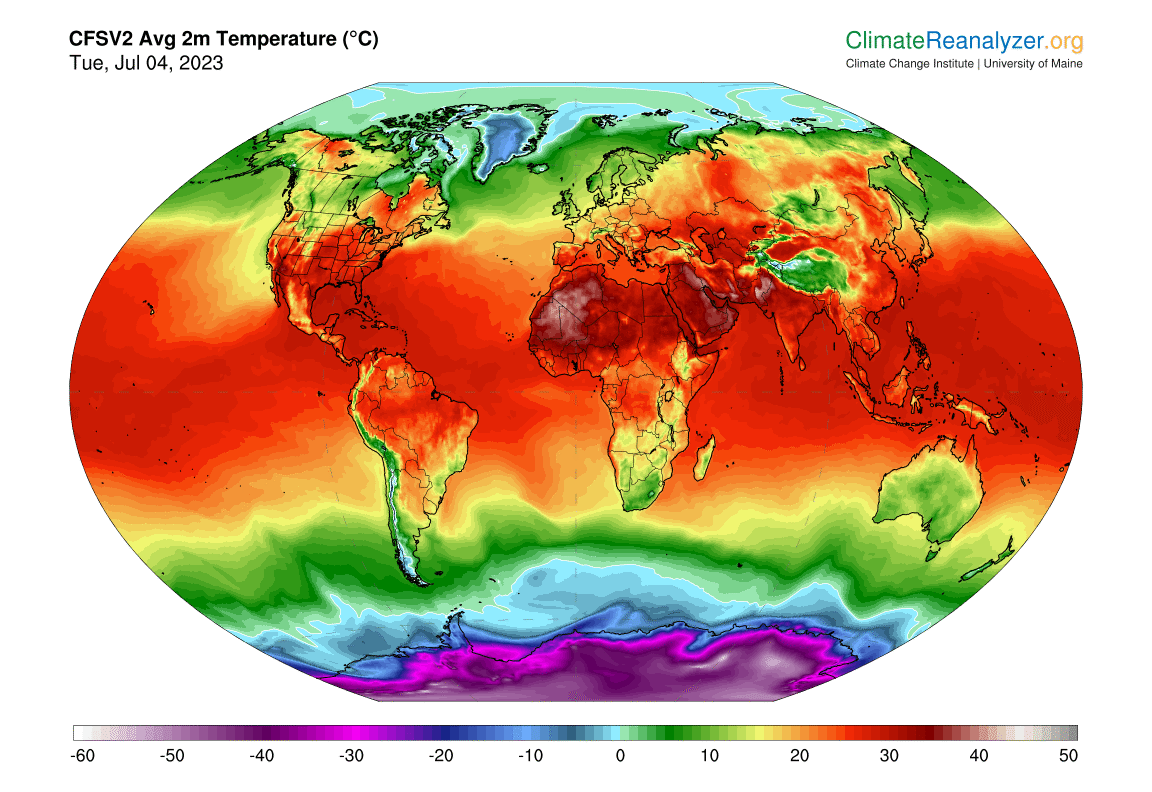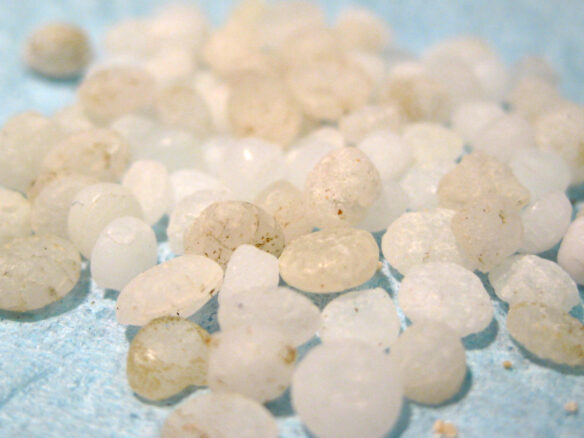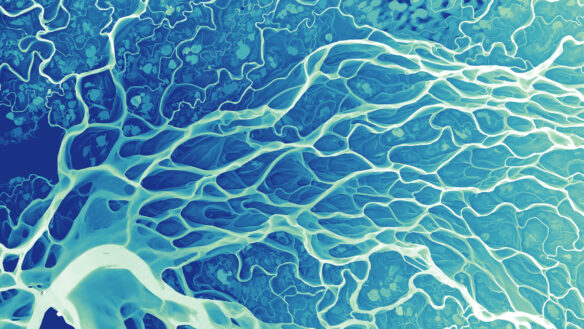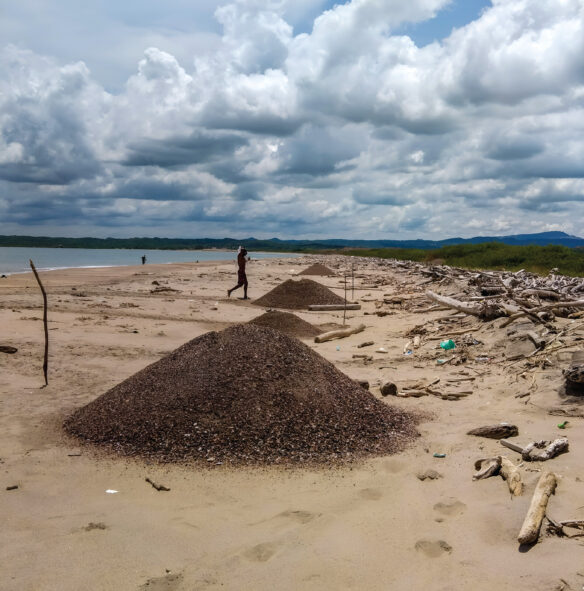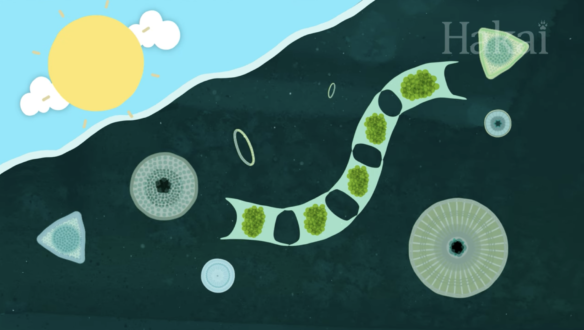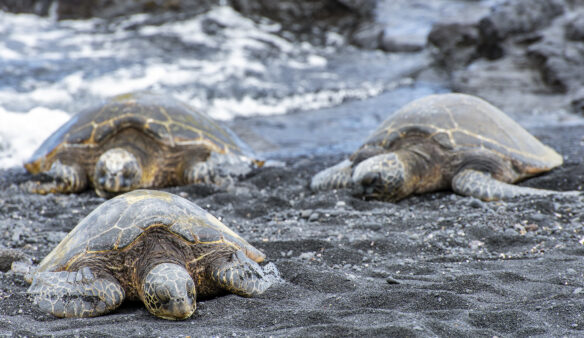Excerpt:
Scientists say to brace for more extreme weather and probably a record-warm 2023 amid unprecedented temperatures.
A remarkable spate of historic heat is hitting the planet, raising alarm over looming extreme weather dangers — and an increasing likelihood that this year will be Earth’s warmest on record.
New precedents have been set in recent weeks and months, surprising some scientists with their swift evolution: historically warm oceans, with North Atlantic temperatures already nearing their typical annual peak; unparalleled low sea ice levels around Antarctica, where global warming impacts had, until now, been slower to appear; and the planet experiencing its warmest June ever charted, according to new data.
And then, on Monday, came Earth’s hottest day in at least 125,000 years. Tuesday was hotter.
“We have never seen anything like this before,” said Carlo Buontempo, director of Europe’s Copernicus Climate Change Service. He said any number of charts and graphs on Earth’s climate are showing, quite literally, that “we are in uncharted territory.”
It is no shock that global warming is accelerating — scientists were anticipating that that would come with the onset of El Niño, the infamous climate pattern that reemerged last month. It is known for unleashing surges of heat and moisture that trigger extreme floods and storms in some places, and droughts and fires in others.
But the hot conditions are developing too quickly, and across more of the planet, to be explained solely by El Niño. Records are falling around the globe many months ahead of El Niño’s peak impact, which typically hits in December and sends global temperatures soaring for months to follow.
“We have been seeing unprecedented extremes in the recent past even without being in this phase,” said Claudia Tebaldi, an earth scientist at the Pacific Northwest National Laboratory in Richland, Wash. With El Niño’s influence, “the likelihood of seeing something unprecedented is even higher,” she said…

